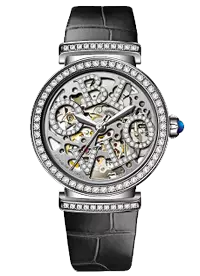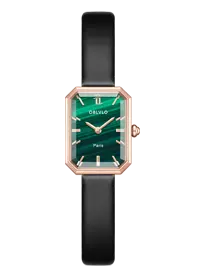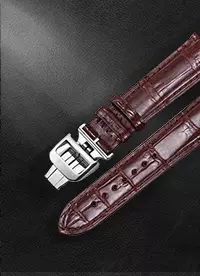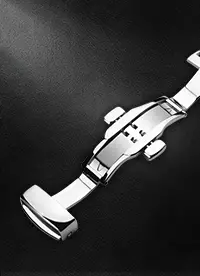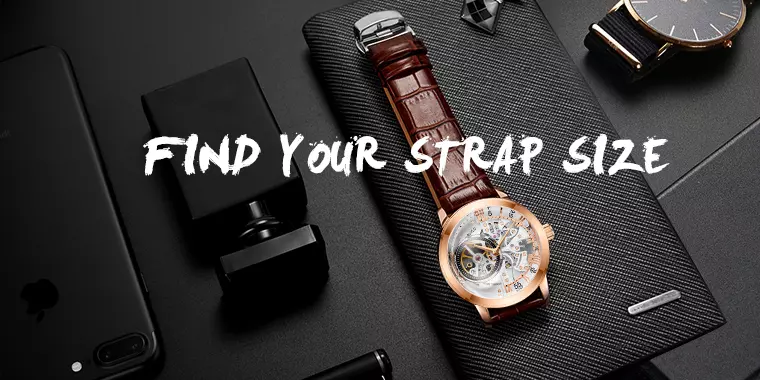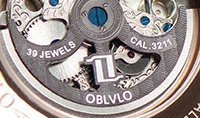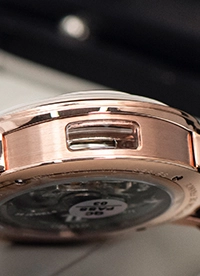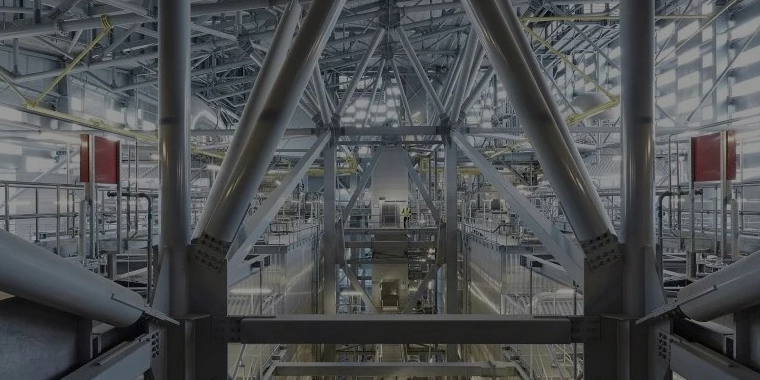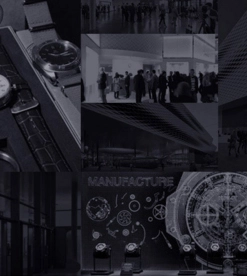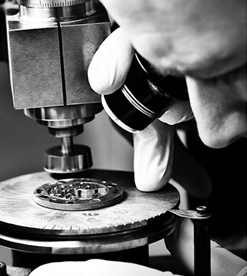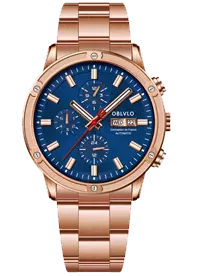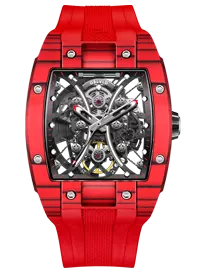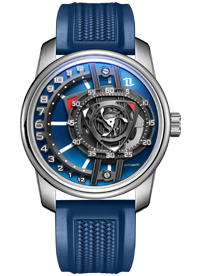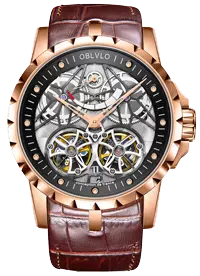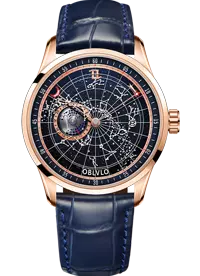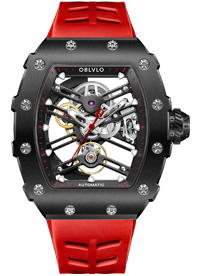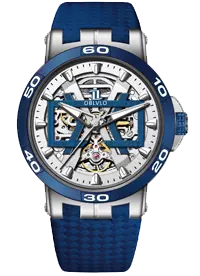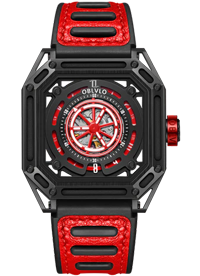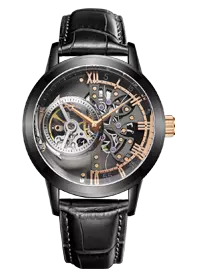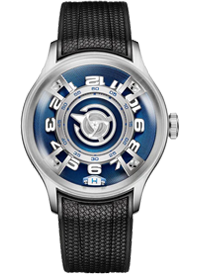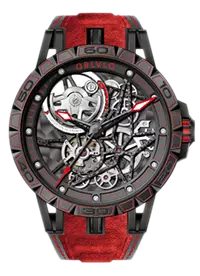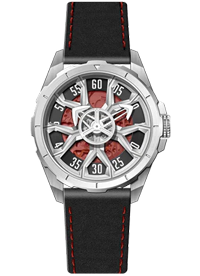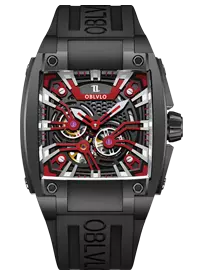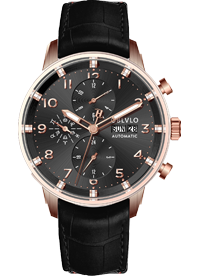SUSTAINABILITY
RICHEMONT GROUP
SUMMARY OF THE CORPORATE CODE OF ETHICS
For years now, the Richemont Group has been committed to conducting its business in accordance with the principles of good corporate governance.
All the companies that make up the Richemont Group ensure the highest standards of integrity in carrying out their business activities, while ensuring respect and consideration for all the partners concerned - customers, employees, suppliers and shareholders alike.
Richemont's values are expressed in the Richemont Corporate Code of Ethics, and its standards of conduct are detailed in the document Standards of Business Conduct , with which Officine complies.
OFFICINE
OFFICINE 'S CODES OF CONDUCT
OFFICINE
OFFICINE 'S CODES OF CONDUCT
Officine follows the standards set forth by the Richemont Group's Board for Social Responsibility when forming its strategy for corporate social responsibility.
These are the Codes followed by Officine :
Code of Business Ethics
Environmental Code of Conduct
Suppliers Code of Conduct
Employee Code of Conduct
CORPORATE RESPONSIBILITY ACCORDING TO OFFICINE CORPORATE RESPONSIBILITY ACCORDING TO OFFICINE
OFFICINE
CORPORATE RESPONSIBILITY ACCORDING TO OFFICINE
The definition of Corporate Social Responsibility given by the European Commission is responsibility for the impact each enterprise has on society. For Officine , Corporate Responsibility means, above all, consistency. Consistency with the brand's DNA and with the intrinsic values it expresses such as ethics, transparency, legality and the philosophy of the Richemont Group. This is why for , Corporate Responsibility starts with taking small concrete steps such as:
The construction of a new zero-impact Manufacture and a related plan for alternative and more environmentally- friendly transport for all the employees who work there
The changeover to FSC® certified paper for all printed materials such as catalogues, instruction booklets, special editorial projects and Press Office kits
Constant attention to the conformity and related certifications of materials used in products destined for the market
More frequent use of the web in order to reduce the quantity of printed materials, as in the case of the digital version of the catalogue which may be downloaded from the Officine official website
The drawing-up of a manual promoting eco-friendly behaviour distributed to employees in order to focus their attention on issues such as energy saving and environmental sustainability
The realisation of non-profit projects whose goal is to continue over time and have a genuine impact on the community
OUR OBJECTIVES
OFFICINE
OUR OBJECTIVES
Officine , through the CSR policy of the Richemont group and its own code of ethics, has actively begun to:
Progressively decrease the environmental impact of its manufacturing and commercial activity
Educate its employees' and suppliers' about an eco-friendly lifestyle
Support local and international non-profit associations, increasing real-world activity by seeking new non-profit projects to back
ENVIRONMENT
INTRO
ENVIRONMENT
INTRO
has begun building a path towards sustainability and corporate social responsibility, starting with the necessary certifications to improve the quality and design characteristic of the brand, as well as the guarantees related to the origin of raw materials and their impact on the environment.
As for the reduction of CO² emissions, Officine has undertaken the ambitious project of a new zero-impact manufacture to be ready in 2014.
OUR PRODUCTS OUR PRODUCTS
ENVIRONMENT
OUR PRODUCTS
THE MATERIALS WE USE
STRAPS
PROTECTION SUISSE DES ANIMAUX
has begun monitoring the sources of leather used in the production of its straps, responding to a specific request by the Protection Suisse Des Animaux (PSA), which has increased awareness among the major watchmaking brands regarding the ethical issue of animal exploitation.
Officine has signed a declaration guaranteeing the renunciation of the use of such exotic leathers, thus committing to the continued guarantee of high-quality leather used for its watchstraps while certifying its ethical and environmental impact.
In this way, the brand has set off on a path to respecting the Washington Convention on International Trade in Endangered Species of Wild Fauna and Flora (CITES).
Indeed, the objective of CITES is to guarantee that the survival of endangered species is not threatened by commercial operations.
All the alligator leather (Alligator Missisippiensis) selected by Officine comes from farms in Louisiana, USA and is tanned almost exclusively in Europe.
These farms guarantee the exclusive use of alligators reared and treated according to CITES regulations, while contributing to a constant growth in the number of wild alligators and placing 12-15% of animals back into their natural habitat.
METALS AND PRECIOUS METALS
All suppliers of metals and precious metals must sign the "Suppliers Code of Conduct"and comply with the guidelines set out by and the Richemont Group.
THE RESPONSIBLE JEWELLERY COUNCIL (RJC)
The Responsible Jewellery Council (RJC) is a non-profit organisation founded in 2005 whose mission is to promote, within the context of gold and diamond jewellery production, responsible ethical, social and environmental practices that respect human rights, from mining to retail.
Officine obtained RJC certification in early 2014.
OUR BOUTIQUES
ENVIRONMENT
OUR BOUTIQUES
THE MATERIALS WE USE
WOOD
For the production of wooden panels and numerous other elements in its boutiques, Officine has begun using wood that respects the protection of the eco-system and the conservation of limited resources.
To this aim, suppliers must guarantee that wood production and processing activities comply with local legislation, rules and environmental norms and that such activities be carried out in harmony with the environment.
LED LIGHTING
The new Officine boutiques were designed and built using LED lighting, with low energy consumption and a high level of environmental sustainability.
LEDs (light emitting diodes) allow full brightness to be reached very quickly, ensuring better efficiency at low temperatures with low emissions of heat. In addition, they do not contain toxic materials. LEDs represent the future of environmentally sustainable lighting, requiring approximately 80% less energy than traditional light bulbs and lasting much longer.
OUR COMMUNICATION MATERIAL OUR COMMUNICATION MATERIAL
ENVIRONMENT
OUR COMMUNICATION MATERIAL
Officine has begun producing catalogues, brochures, leaflets, invitations, warranties, instruction booklets and press kits on FSC® certified paper, the suppliers of which are committed to very strict policies for the protection of the environment.
Our partners have adopted very high standards of control over the origin of the paper used for printing and the environmental impact of such activities, guaranteeing the use of eco-friendly materials including ink and packaging.
In addition to the FSC® (Forest Stewardship Council) certification, they have also been granted PEFC® certification for the sustainable management of forests, issued by an independent body.
This additional certification meets specific sustainability requirements, particularly with regard to small forest where forest management criteria are more difficult to monitor.
OUR DIGITAL CATALOGUE
Another key step towards better management of environmental resources was the decision to make the Officine catalogue available for download online, thus significantly reducing the use of paper and ink as well as CO² emissions, generated both by the production and the shipment of each individual catalogue.
manufacturing
ENVIRONMENT
MANUFACTURING
OFFICINE GOES "GREEN"
The most ambitious project in terms of eco-sustainability and eco-compatibility has been the new manufacture project.
Ten years on from the inauguration of its Neuchâtel Manufacture, Officine inaugurated the new plant where all the activities concerning the development, production and assembly of the movements and the watches were transferred.
The new production site opened at the end of 2013 and represents an extraordinary opportunity for the optimisation of production processes both in terms of quantity and quality.
The new Officine building has zeroenvironmental impact as far as the production of carbon dioxide is concerned thanks to the integration of a number of technologies designed to reclaim and recycle resources, emission-reducing devices, electricity from completely renewable sources and policies promoting eco-sustainable mobility among employees.
The following are a few examples of ways in which the new manufacture satisfies the requirements of zero impact:
The water used in production processes is reused for the toilets, for cleaning and in the cooling systems
The energy produced by the machinery is reused in the heating system
A state-of-the-art heat pump system permits optimisation of the energy produced by both the heating and cooling systems
The objective is to achieve at least the MINERGIE® standard, a building standard that permits rational use of energy and extensive use of renewable energy, thus reducing the impact on the environment of large production sites.
CO² EMISSIONS
ENVIRONMENT
CO² EMISSIONS
OFFSETTING
Officine annually monitors the CO² emissions of all its production activities, from the manufacture to the boutiques, up to travel by its employees.
EMPLOYEES
BEST PRACTICES AT THE OFFICES BEST PRACTICES AT THE OFFICES
EMPLOYEES
BEST PRACTICES AT THE OFFICES
"GUIDELINES FOR ECO-SUSTAINABLE CONDUCT"
In order to encourage Officine employees to lead, inside and outside the office, a more environmentally sustainable life, an internal committee responsible for CSR has been appointed with the task of drawing up a "best practices"document to be distributed to each employee.
A series of recommendations and suggestions was collected in the document "Guide to eco-friendly behaviour in the company", created with the dual purpose of informing and giving practical indications on how to behave in a more eco-friendly manner: print as little as possible and always shut down your computer before you leave the office, use public transport instead of your car for commuting to work, recycle as much as possible, do not use air conditioning with the windows open - these were just some of the suggestions contained in the document.
WHAT WE DO
At the Officine offices, particular attention is paid to everyday acts:
What gets printed and how it is printed: only strictly necessary documents are printed, with preference given to the exchange of files via email and the use of shared folders. Most of all, only official presentations are printed in colour and, where possible, always choosing double sided printing. Paper that can be printed on again is reused.
What gets shipped and how it is shipped: given the high level of CO² emissions, the use of express couriers is carefully controlled.
How and when to travel for work: the use of conference calls is preferred and travelling by air can be chosen only for very long distances. Where possible, suggests that its employees use trains rather than planes which produce much higher emissions of CO².
NON-PROFIT
OUR COLLABORATIONS
NON-PROFIT
OUR COLLABORATIONS
For years, Officine has encouraged initiatives whose ultimate goal is social responsibility both in Italy and abroad. The brand is consistently linked to diverse associations: Fondazione De Marchi and Magica Cleme Onulus (Italy), Les Enfants de Frankie (France), Action for Children (UK), Sailing Heals (USA).
"Captain for a day", the principle initiative organised on board the Eilean, gives starring roles to children and young adults facing illness and hospital treatment. Real sailing lessons characterise the various activities of this "exceptional crew".
also promotes other, non-sailing initiatives, such as entertainment, laboratory time and excursions, with the aim of improving the health and well-being of patients from these associations while giving continuity to the collaborations born in recent years.
CSR
OFFICINE FOR PANGAEA
CSR
OFFICINE FOR PANGAEA
Between 2008 and 2012, Officine was a partner in celebrated South African explorer Mike Horn's most recent expedition: to sail around every continent aboard the Pangaea yacht, built from recycled materials and the latest in eco-sustainable technology.
The Pangaea expedition's objective was to bring international public awareness to the environmental decline of our planet and create a generation of young ambassadors standing for the preservation of nature and its resources.
This was made possible through the participation of groups of young explorers between the ages of 12 and 20. During various stages of the expedition, they were given the chance to spend time with Mike Horn on board the Pangaea and carry out activities beneficial to the Earth while learning to care for the environment and take responsibility for recycling, energy conservation and eco-sustainability.
Mike Horn and his "Young Explorers"operated under the expedition's motto of "Explore, Learn, Act", which expresses the project's philosophy – shared by Officine – to the fullest: it's no longer enough to just observe; it's time to act and give it our all.






















